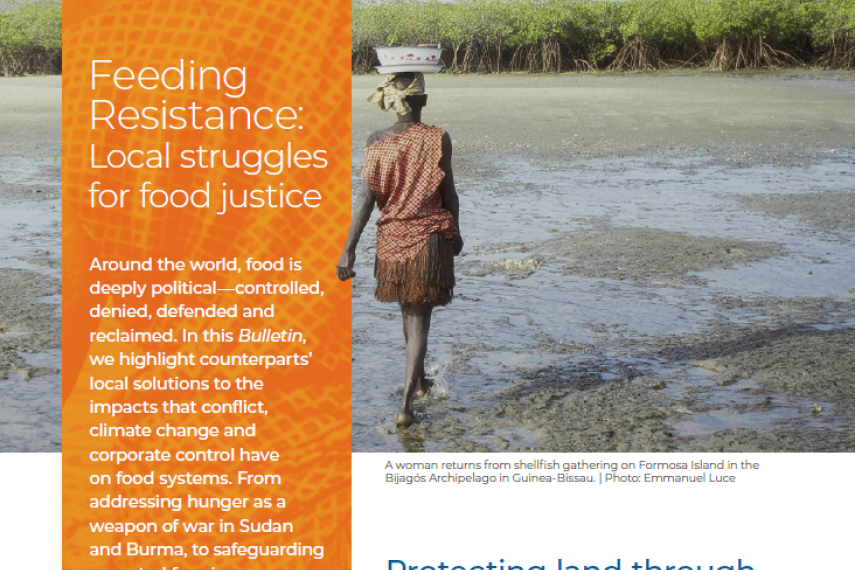
Feeding Resistance: Local struggles for food justice

Around the world, food is deeply political—controlled, denied, defended and reclaimed. In this Bulletin, we highlight counterparts’ local solutions to the impacts that conflict, climate change and corporate control have on food systems. From addressing hunger as a weapon of war in Sudan and Burma, to safeguarding ancestral farming knowledge in West Africa and challenging corporate control of seeds in Canada, these are the stories of a long-standing commitment to food sovereignty so that communities can thrive.
Protecting land through local ecological knowledge
When local shellfish gatherers in the Bijagós archipelago of Guinea-Bissau noticed declining stocks of the mollusks, they knew what to do. The all-women group collectively imposed longer no-harvest periods, adapting traditional practices to meet today’s environmental realities.
By supporting local leadership and traditional governance, our counterparts help ensure that these cultural practices remain strong in the face of deforestation, land grabbing and climate change.
Interview: Working in coalition for food sovereignty
Lucy Sharratt is the founding coordinator of the Canadian Biotechnology Action Network (CBAN). CBAN is a national network of farmer associations, regional coalitions and environmental and social justice groups concerned about genetic engineering in food and farming. Inter Pares has been an active member of CBAN since the network’s creation in 2006.
Read about how we work in coalition for food sovereignty in Canada and in the Global South.
When food is a weapon of war: Local food resistance and mutual aid
In a war zone, food is yet another weapon of the powerful. In places like Gaza, Sudan and Burma, armed actors use food to control, punish or displace people. Warring parties block food aid, destroy farms and disrupt local food systems. These deliberate strategies deepen suffering, kill civilians and violate international law.
In Sudan and Burma, our counterparts are among those responding to the crisis by offering emergency food support to people forced to flee their homes, and supporting farmers with seeds, tools and training to grow food locally.